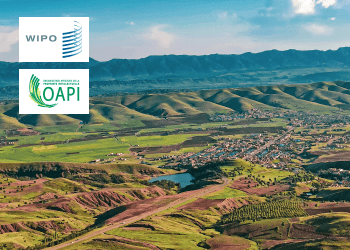Updates on international IP registration systems: PCT, Hague System, OAPI

PCT
The countries of Jamaica and Iraq have recently acceded to the Patent Cooperation Treaty (PCT), with Jamaica depositing its instrument of accession with the World Intellectual Property Office (WIPO) on November 10, 2021, and Iraq following suit on January 31, 2022.
The PCT allows applicants to file one patent application, accompanied by the payment of a single set of fees, designating any, or all, of the PCT member states. As such, it acts as a basis for further national patent proceedings in the jurisdictions of the applicant’s interest by way of entering the corresponding national/regional phases.
Jamaica now constitutes the 154th member of the PCT Union, and Iraq the 155th. The PCT entered into force for Jamaica on February 10, 2022, and will be enforced in respect of Iraq from April 30, 2022.
The accession of both Jamaica and Iraq to the multilateral PCT signifies a growth of global cooperation in respect to intellectual property protection, and more specifically, international patent protection.
Hague
Several amendments to the Common Regulations of the Hague System were enforced on January 1, 2022. These changes, which were proposed in October 2021, span a range of rules within the regulations, and are applicable to all international design applications filed on or after January 1, 2022.
The alterations to Rule 17 “Publication of the International Registration” constitute an extension to the time frame for the standard publication of an international design registration. As such, publication will now take place after the expiration of the 12-month term counting from the registration date, as opposed to the previous 6-month term. Furthermore, the possibility to request an earlier publication any time prior to the publication of the international registration has been introduced.
Rule 21 “Recording of a Change” has been amended to allow the WIPO International Bureau (IB) to record a new owner as the holder of an international registration where the request is presented and signed by the new owner, provided that an assignment document or other confirmation document is submitted as evidence. This newly introduced change is set to simplify the procedure to record a change of ownership in the case that the signature of the original holder cannot be obtained.
The final change to the rules to the Common Regulations has been made to Rule 5 “Excuse of Delay in Meeting Time Limits” in regards to delays to meeting time limits before the WIPO. A new provision has been implemented which allows for the reason of force majeure, for example, due to Covid-19, to be used as an excuse for such delays by interested parties, including applicants, holders, their representatives and Offices. Such an excuse will be met with corresponding relief if a time limit before the IB has been missed, so long as the interested party submits sufficient evidence as to the reason for the missed time limit, and performs the relevant actions as soon as reasonably possible within 6 months from the missed time limit.
The amendments to the Common Regulations in relation to the Hague System demonstrate a modernisation of the system in line with present day issues, and provide for a more user-friendly method for all parties.
OAPI
The African Intellectual Property Organization (OAPI) has implemented amendments to its regional intellectual property system in the form of new IP laws spanning several areas, which were enforced as of January 1, 2022.
The new law in relation to trademarks expands upon the definition of a mark. As such, sound, audio-visual, and certification marks may now be protected by way of trademark registration.
Trademark applications will now be subject to an opposition period of 3 months prior to registration, decreasing from the previous 6-month period. Furthermore, the term for filing an appeal against an opposition decision now constitutes 2 months as opposed to the previous 3-month term.
Moreover, applications for trademarks are now to be examined based upon absolute grounds, aiming to target the possibility of a mark being refused based upon lack of distinctive character, or the mark being confusing to the public.
Furthermore, it will henceforth be possible to include both goods and services in the same application for a trademark, and an application may now be divided according to the relevant goods or services at any stage of the process prior to registration.
As per the new OAPI system, common law rights are now officially recognised, allowing any third party to file a claim of ownership objection during the opposition period on the basis of prior use of a mark. In addition, the new legislation contains amendments which strengthen the measures to tackle the issue of counterfeit goods which are protected by trademarks.
The recently implemented legislation has introduced a new opposition term in relation to industrial designs, whereby applications will be published for a three-month period prior to registration.
With regards to Geographical Indications, the scope of protection has been expanded to include a wider range of products, including artisanal and agricultural products.
The new OAPI legislation affects all of the OAPI member-states, namely Benin, Burkina Faso, Cameroon, Central African Republic, Chad, Republic of Congo, Ivory Coast, Equatorial Guinea, Gabon, Guinea, Guinea-Bissau, Mali, Mauritania, Niger, Senegal, Togo, and Comoros. These changes indicate a commitment to the advancement of modernised legislation by the OAPI, which in turn will yield more effective IP protection, and encourage a higher volume of filings with the OAPI.